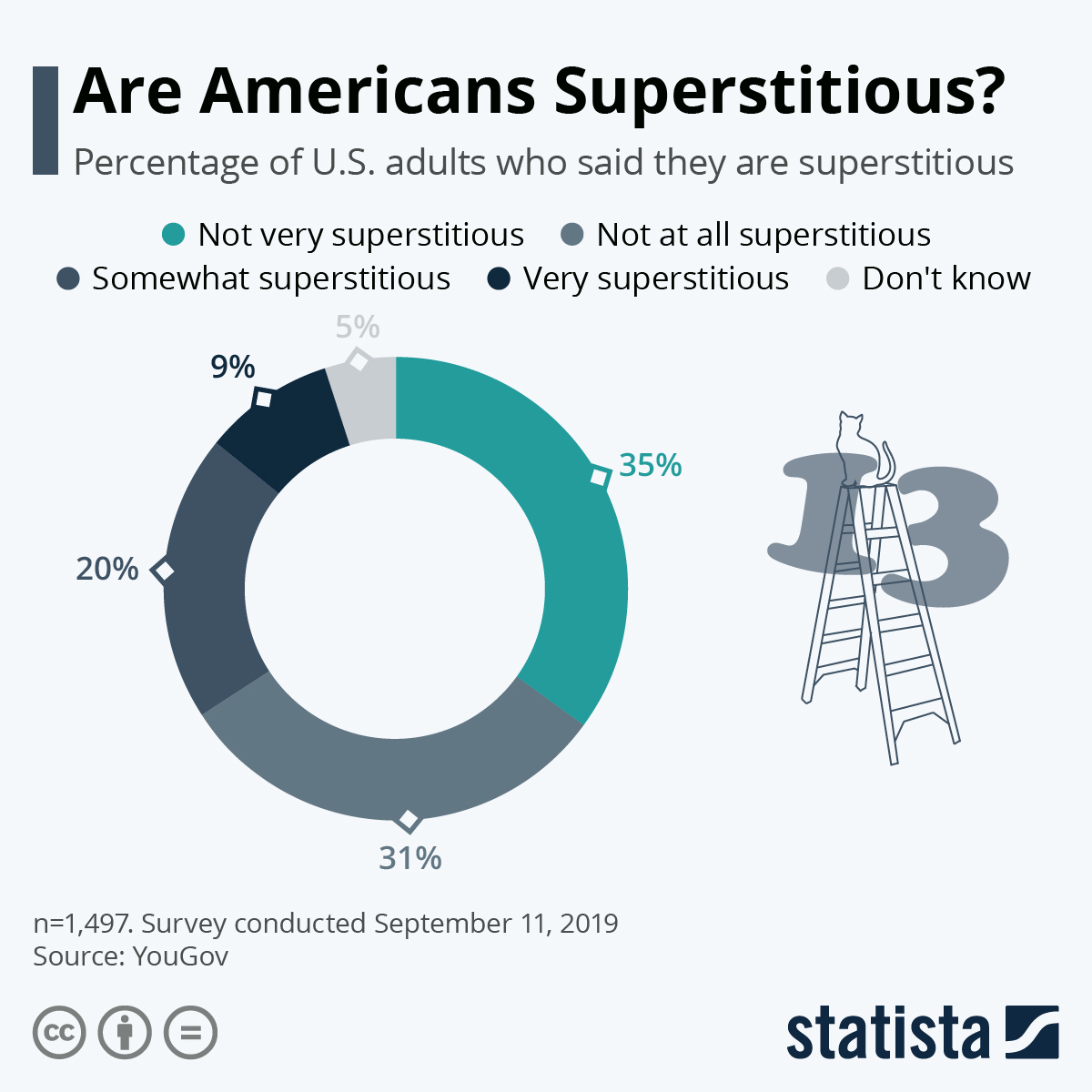
For most people, Friday the 13th is just another day on the calendar. However, for the superstitious, it is the unluckiest day of the year. The irrational fear of Friday the 13th is called friggatriskaidekaphobia. It affects over twenty million people in the US and many more worldwide. Some of the anxiety can be blamed on the namesake movie series. However, the day's bad reputation began long before the film's hockey-masked villain, Jason Voorhees, made his debut in 1980.
Some experts think the superstition starts with the fear of 13, or triskaidekaphobia. Thomas Fernsler, an associate policy scientist at the University of Delaware, believes 13 is considered unlucky because it follows the “perfect” number 12. There are 12 months in a year, 12 zodiac signs, 12 tribes of Israel, 12 apostles of Jesus, etc. Hence, the number that follows is widely considered incomplete and, therefore, "unlucky."

Folklore historian Donald Dossey has another theory. He attributes 13's bad reputation to a myth from the time when the Vikings occupied Scandinavia. A dozen gods were enjoying a quiet dinner party in Valhalla, the mythological Norse heaven, when Loki, the god of mischief, walked in uninvited. He allegedly instigated Hoder, the blind god of darkness, into killing Balder, the god of joy and gladness. To this day, many Nordic people avoid having 13 guests at a party. The French even go as far as "renting" a special 14th guest to avert bad luck. Legend has it that US President Franklin D. Roosevelt feared the number so much that he never traveled on the 13th.
Friday has its has its own negative associations. According to the Bible, Jesus was crucified on this day. Though the date was not the 13th, it happened shortly after his final meal, the Last Supper, which featured 13 guests. Some biblical scholars think Eve tempted Adam with the forbidden fruit on a Friday. The only historical event believed to have occurred on Friday the 13th is when Adam and Eve's son Cain murdered his brother Abel.

People suffering from friggatriskaidekaphobia, experience symptoms that range from mild anxiety to full-on panic attacks. For those working in injury-prone professions such as construction and shipbuilding, the nervousness often results in accidents, making them fear the day even more.
Surprisingly, Friday the 13th also hurts the US economy. Businesses lose about $900 million on the dreaded date as the superstitious avoid going to work, traveling, or making big purchases. As it turns out, their fears are unfounded. A 2008 study by the Dutch Centre for Insurance Statistics revealed that fewer traffic accidents occur on Friday the 13th than on other Fridays. The number of fires and thefts reported was also much lower.
For the brave, the day may prove to be extremely lucky given that many retailers offer large discounts to encourage people to shop. So venture out to your favorite stores and treat yourself to a bargain or two!
Happy Friday, The 13th!
Resources: Wikipedia.com, Timeanddate.com
